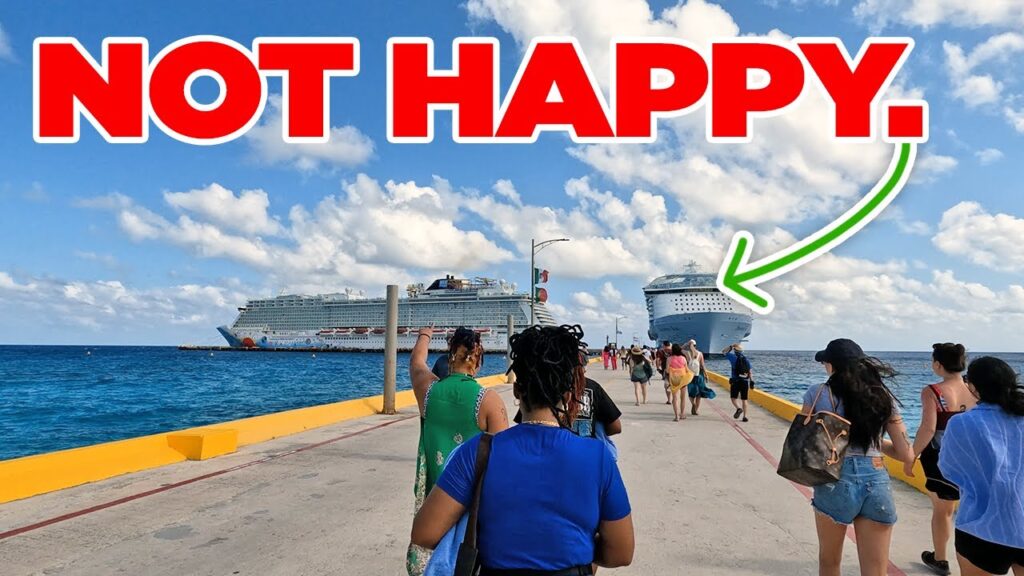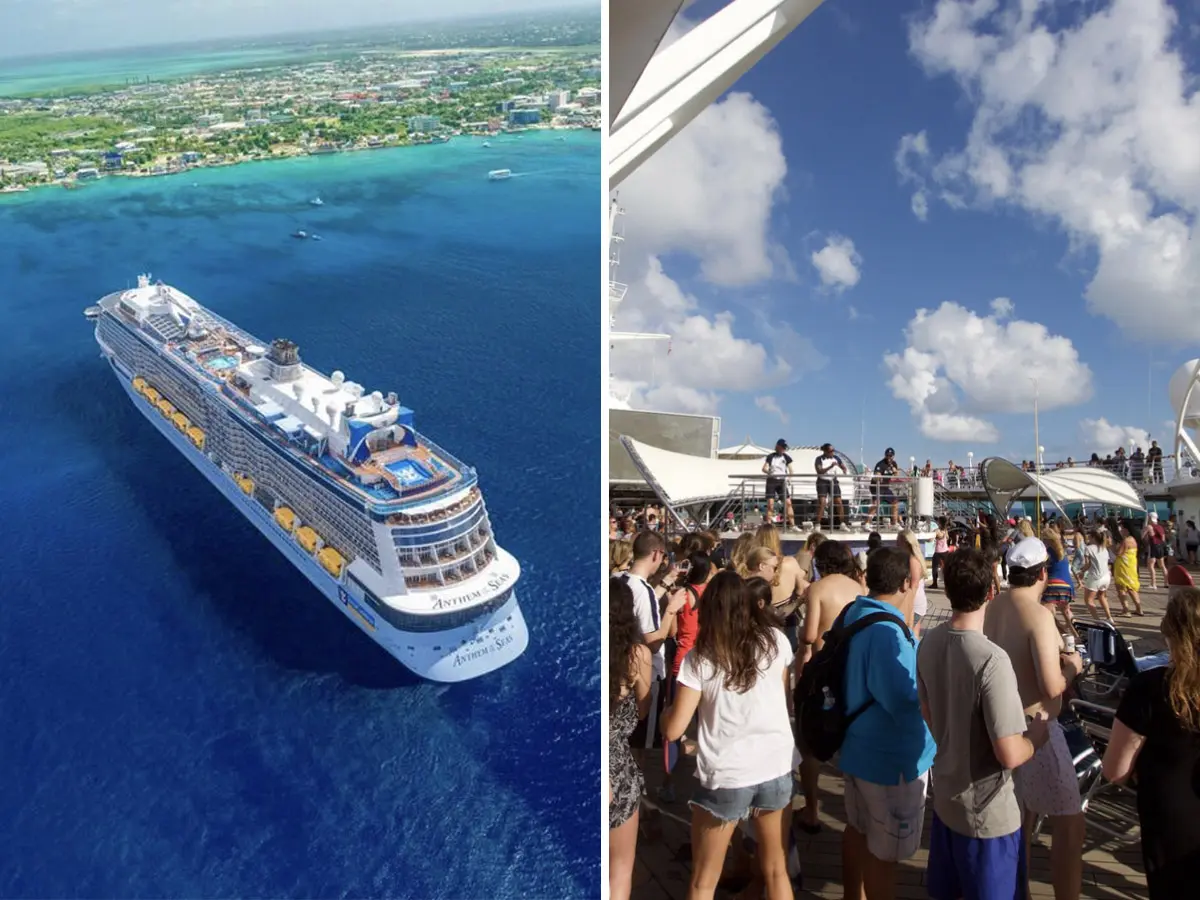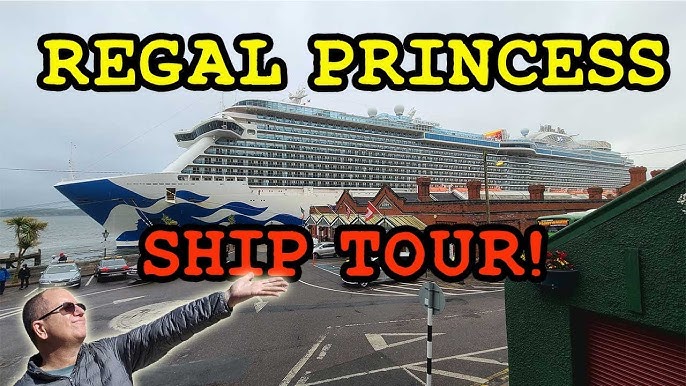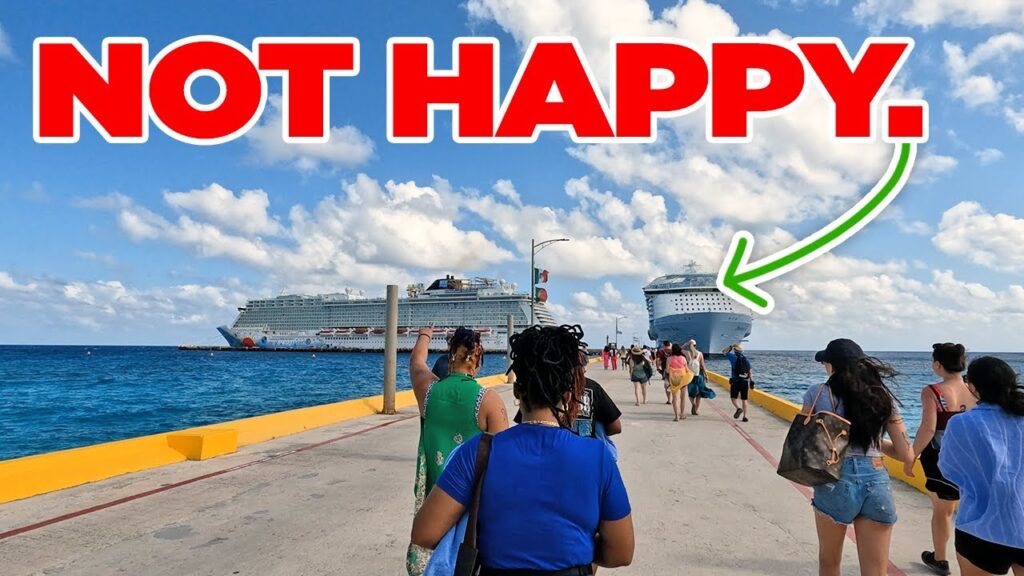In the article “10 Common Reasons for Cruise Ship Disappointment,” you’ll discover why many people end up feeling let down during their cruise vacations. The article begins with a video by Royal Caribbean Blog, highlighting the importance of having a positive cruise experience. It then goes on to provide tips for ensuring a positive cruise experience, including considerations when planning a cruise vacation. The article delves into the ten common reasons for cruise ship disappointment, such as choosing the wrong cruise ship, not utilizing a travel agent, and not researching ship amenities. It also offers advice on avoiding disappointment by selecting the right cruise ship, booking add-ons in advance, and choosing the right cabin category and location. Additionally, the article emphasizes the need to expect large crowds on board and provides strategies to avoid them, along with highlighting the importance of familiarizing yourself with ship lingo and adhering to ship time. Lastly, it suggests purchasing travel insurance and researching ports of call to make the most of your time during the cruise.
Navigating through all these factors can be overwhelming, but with the help of this article, you’ll be able to ensure a smoother and more enjoyable cruise vacation. By understanding the common reasons for disappointment and following the tips provided, you can make informed choices that will lead to a memorable and satisfying experience on your next cruise adventure. So before you set sail, take a few moments to familiarize yourself with these insights and set yourself up for cruise ship success!

Choosing the Right Cruise Ship
Choosing the right cruise ship can make all the difference in ensuring that you have the best vacation experience possible. With so many options available, it’s important to do your research and consider your own preferences and needs. Here are some key factors to consider when choosing a cruise ship:
Researching the Ships
Before making a decision, take the time to research different cruise ships that fit your desired itinerary and budget. Look for reviews from past passengers to get an idea of the ship’s overall atmosphere, amenities, and quality of service. Pay attention to details such as cabin size, dining options, onboard activities, and entertainment offerings. By researching different ships, you can find the one that best matches your preferences and priorities.
Utilizing a Travel Agent
Consider utilizing the expertise of a travel agent who specializes in cruises. They can provide valuable advice and help you navigate through the myriad of options available. Travel agents have access to insider knowledge and can often negotiate better deals or provide exclusive perks such as onboard credits or cabin upgrades. They can also assist in finding the best cruise line that suits your individual needs and preferences.
Understanding Additional Costs
When budgeting for a cruise, it’s important to understand that the initial ticket price may not include all expenses. Additional costs to consider include gratuities, taxes, port fees, and onboard purchases such as alcoholic beverages, specialty dining, spa services, and shore excursions. Take the time to carefully read the fine print and familiarize yourself with any potential hidden costs. This will help you avoid any unexpected surprises and allow you to plan your budget accordingly.
Planning Your Cruise Experience
Once you’ve chosen the right cruise ship, it’s time to plan out the details of your cruise experience. From booking add-ons to choosing the right cabin, careful planning can enhance your overall enjoyment. Consider the following factors when planning your cruise:
Booking Add-Ons in Advance
Many cruise lines offer a variety of add-ons and packages that can enhance your cruise experience. These may include beverage packages, specialty dining options, spa treatments, or even Wi-Fi access. By booking these add-ons in advance, you can often save money and secure availability. Take the time to review the available options and consider which ones will make your cruise even more enjoyable.
Selecting the Right Dining Time
Most cruise ships offer multiple dining options, including traditional dining with fixed seating times or flexible dining where you can dine at any time. Consider your dining preferences and choose the option that suits you best. If you prefer a more structured dining experience or enjoy getting to know your fellow passengers, traditional dining may be the right choice for you. On the other hand, if flexibility and spontaneity are more your style, opt for the flexible dining option.
Choosing the Right Cabin
The type and location of your cabin can greatly impact your cruise experience. Consider factors such as cabin size, view, and proximity to amenities. If you tend to get seasick, choosing a cabin in the lower decks and closer to the center of the ship can help minimize the rocking motion. If you value privacy and quiet, consider booking a cabin away from high-traffic areas such as elevators or late-night entertainment venues. Carefully review the cabin options available on your chosen ship and choose the one that best matches your preferences and budget.
Preparing for Crowds
Cruise ships can be bustling, especially during peak travel periods. Be prepared for crowds and plan your activities accordingly. If you prefer a quieter experience, consider taking advantage of the ship’s facilities during off-peak hours or exploring the ship when most passengers are participating in shore excursions. Additionally, familiarize yourself with the ship’s layout so that you can navigate between venues efficiently and avoid unnecessary congestion.

Navigating the Cruise Ship
Once you board the cruise ship, it’s important to familiarize yourself with the layout, rules, and procedures to make the most of your experience. The following tips will help you navigate the cruise ship smoothly:
Understanding Ship Lingo
Cruise ships have their own unique terminology, and familiarizing yourself with these terms will make it easier to understand announcements and navigate the ship. For example, the “aft” refers to the rear of the ship, while the “bow” refers to the front. “Deck” refers to the different levels of the ship, and each has a specific number. Learning these basic terms will help you navigate the ship with ease.
Adhering to Ship Time
Cruise ships typically operate on a different time zone than the ports they visit. It’s important to adhere to ship time to ensure you don’t miss out on any activities or departures. Pay attention to announcements and consult the daily schedule provided in your cabin for any changes in ship time. Set your watch and clock to ship time as soon as you board to avoid any confusion.
Purchasing Travel Insurance
Travel insurance is an essential aspect of any cruise vacation. It provides coverage for unforeseen circumstances such as trip cancellations, medical emergencies, or lost luggage. Purchasing travel insurance will provide peace of mind and protect you financially in case of any unexpected events. Consult with a travel insurance provider or your travel agent to determine the best coverage options for your cruise.

Maximizing Port of Call Experiences
One of the highlights of a cruise vacation is the opportunity to explore different ports of call. To make the most of your time in each destination, consider the following tips:
Researching Ports in Advance
Before arriving at each port of call, take the time to research the destination and familiarize yourself with its highlights, culture, and local customs. This will allow you to plan your time ashore more effectively and ensure you don’t miss out on any must-see attractions. Look for recommendations on popular sights, local cuisine, and unique experiences to make your visit memorable.
Booking Excursions Early
Many cruise lines offer a variety of shore excursions that allow passengers to explore the destination in a structured and organized manner. These excursions can range from guided tours to adventure activities or cultural experiences. Booking your desired excursions early will ensure availability and allow you to secure your preferred activities. Check the cruise line’s website or contact your travel agent to learn about the excursion options available for each port of call and make your reservations in advance.

Conclusion
Choosing the right cruise ship and planning your cruise experience in advance are crucial to ensuring a memorable and enjoyable vacation. By researching different ships, utilizing the expertise of a travel agent, and understanding additional costs, you can make an informed decision that meets your preferences and budget. Planning add-ons, selecting the right dining time and cabin, and preparing for crowds will enhance your onboard experience. Navigating the cruise ship with an understanding of ship lingo, adhering to ship time, and purchasing travel insurance will help you have a smooth sailing experience. Finally, maximizing your port of call experiences by researching ports in advance and booking excursions early will allow you to make the most of your time ashore. With these tips and careful planning, you’re well on your way to a fantastic cruise vacation. Bon voyage!

Hi, I’m Mike, the author of Ocean Bliss Journeys. Thank you for visiting 🙂

